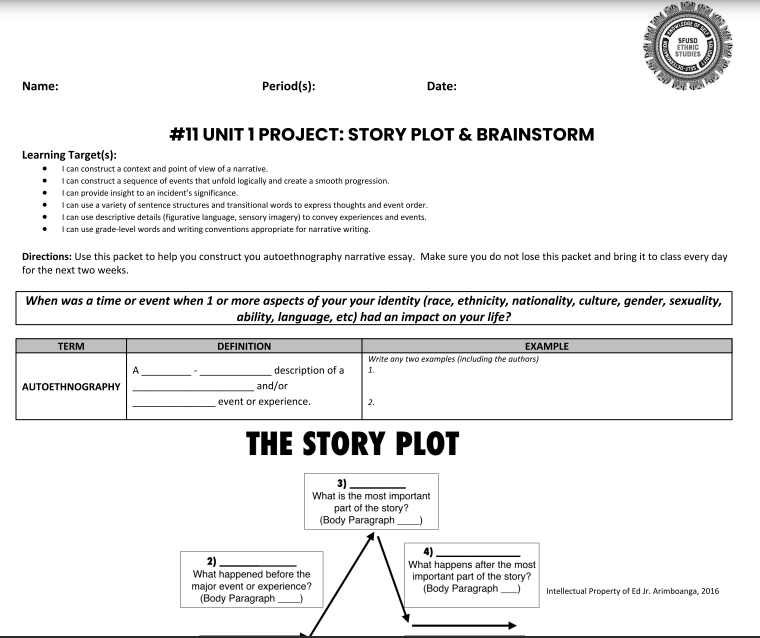San Francisco Unified ethnic studies curriculum teaches students that white supremacy is an ‘ever adapting system,’ calls for students to ‘transform’ society through activism
Incidents
A Freedom of Information Act request reveals that the San Francisco Unified School District’s ethnic studies curriculum teaches ninth graders that white supremacy is an “ever adapting system” and they need to develop a critical consciousness to oppose oppression, engage in activism. Recommended resources include the works of Antonio Gramsci and Paulo Freire.

The ninth-grade course features “concept definitions” including “identity,” “systems,” “cultural hegemony,” and “transformation.” In defining “cultural hegemony,” the district cites 20th century neo-Marxist Antonio Gramsci stating that it “refers to the domination, or rule, achieved by ideological means.” It continues: “This infers that systems of power are reinforced via groups of people who can wield power and institutions (media, in this case) that may heavily influence the everyday thoughts, expectations and behaviors of the rest of society.”
The concept of “transformation” is defined as a “liberatory process, through critical consciousness and agency, or uncovering, reclaiming, revaluing and maximizing the potential of one’s humanity in opposition to oppression and dehumanization.”
Key concepts include “white supremacy,” “social privilege,” “anti-Blackness,” “anti-Queerness,” “transphobia,” “Patriarchy/Male supremacy,” “ableism,” “classism,” “ageism,” and “transformative resistance.”
According to the curriculum’s “enduring understandings,” students are taught that “developing solidarity can be an effective way to resist systems of oppression,” “systems and power can be used to dominate/oppress or liberate/resist,” “oppression can lead to resistance,” “hegemony is established and maintained through systems and institutions of power,” and “critical consciousness can empower people to take effective action against injustices in their community/ies.”
Recommended resources for the course include Paulo Freire’s Pedagogy of the Oppressed, Antonio Gramsci’s Prison Notebooks, postmodernist Michel Foucault’s Discipline and Punish: the birth of a prison, and Tim Wise’s “White Like me.”
A unit one project provided in the request features students writing an “autoethnographic” story. The prompt provided asks students “when was a time or event when 1 or more aspects of your identity (race, ethnicity, nationality, culture, gender, sexuality, ability, language, etc) had an impact on your life?”
Possible narrative topics provided in the assignment include “police or military,” “racism,” “discrimination,” and “misunderstanding.”

Stay Informed
